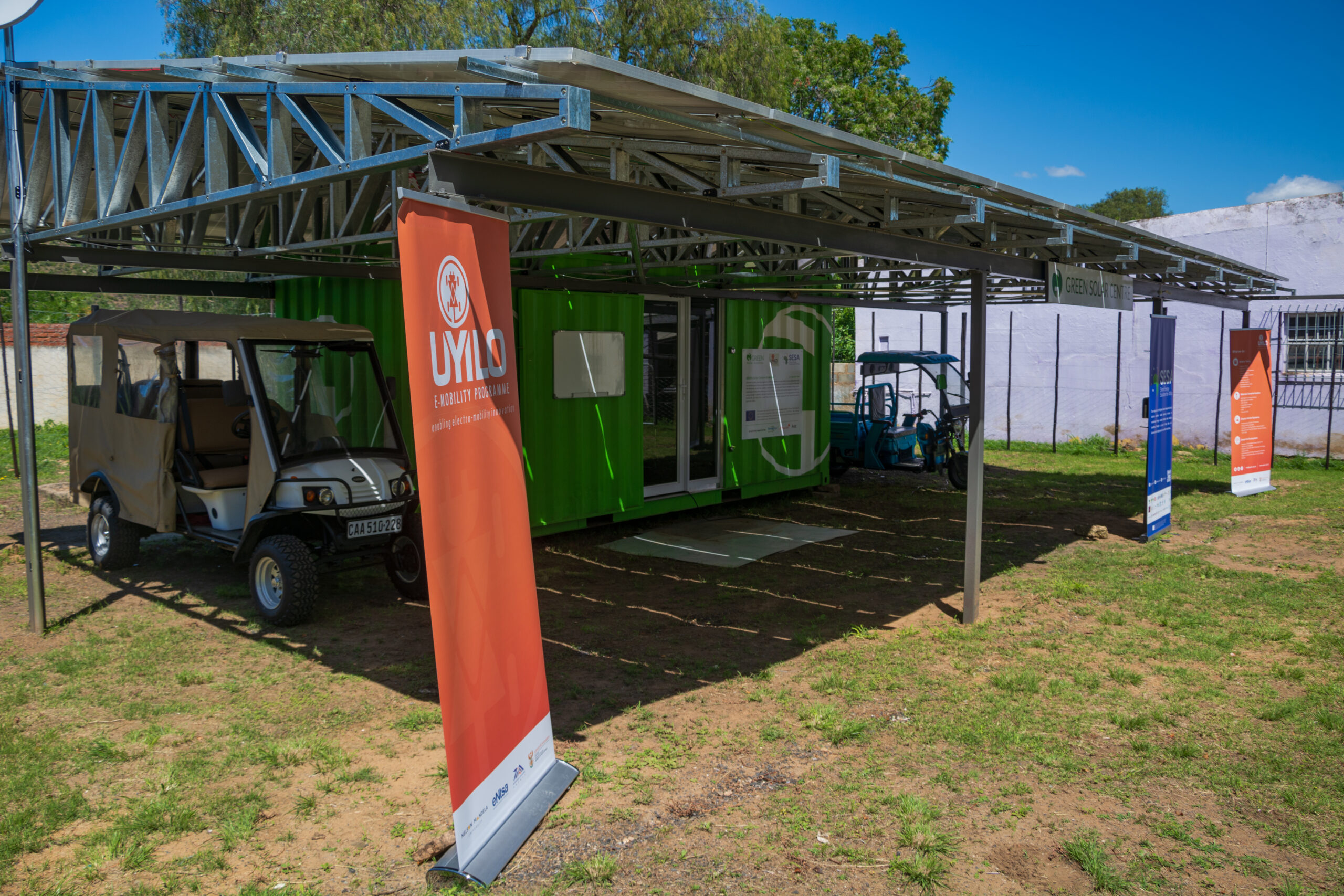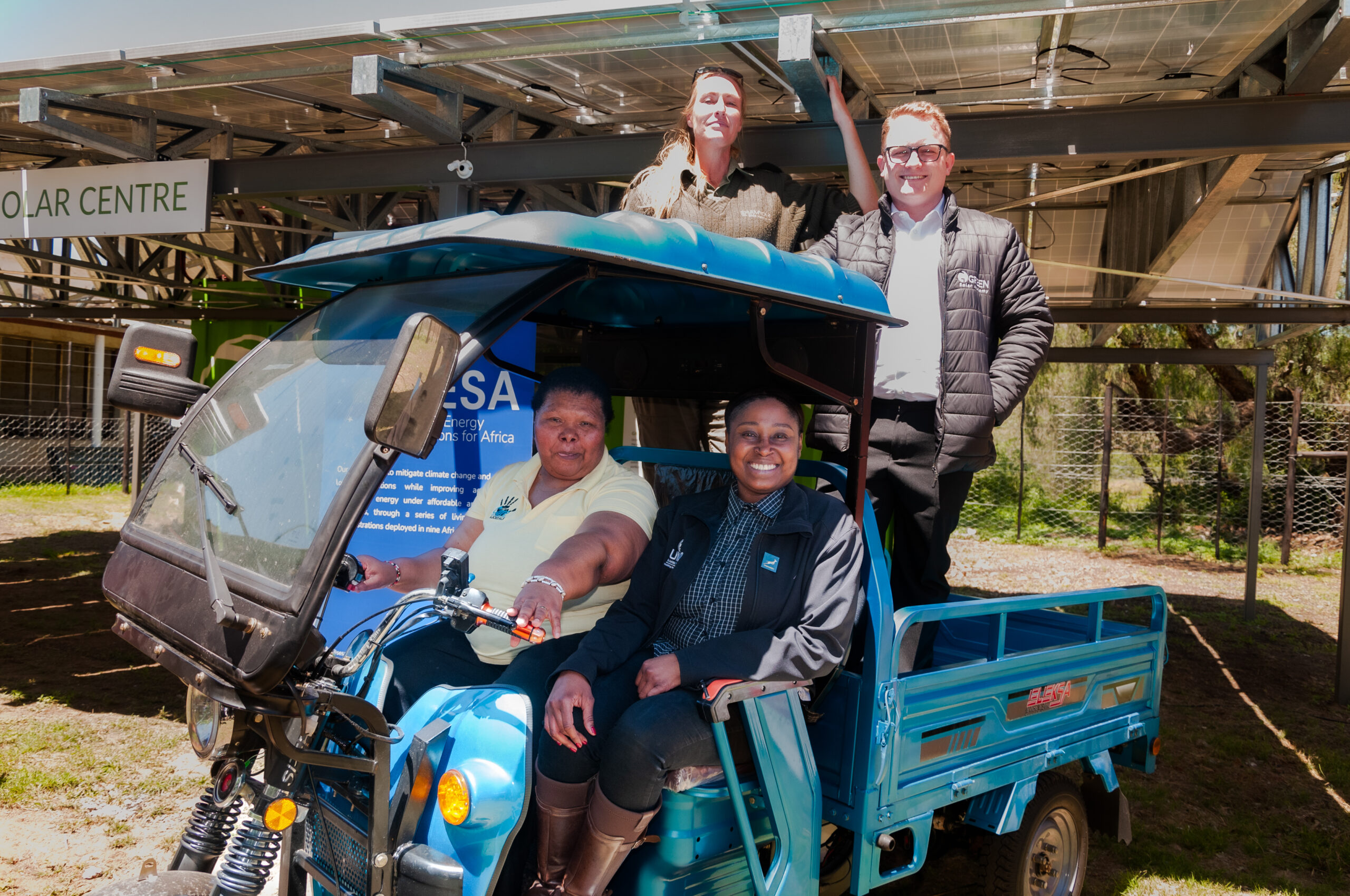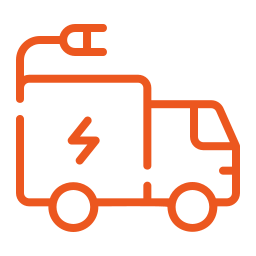South Africa Living Lab


South Africa Living Lab – Edem Foli
Living lab description
This living lab in Alicedale, Eastern Cape, strongly focuses on renewable energy and creating entrepreneurship opportunities. The Solar hub comprises solar panels to provide renewable energy, internet access and electric vehicles suited for rural conditions to provide local transportation.
The installation is designed and implemented to benefit the Alicedale community positively, with a strong focus on renewable energy and creating entrepreneurship opportunities. The installation includes a shipping container converted to serve as a solar hub for the centre, solar panels to provide renewable energy and internet access, and electric vehicles suited for rural conditions to provide local transportation.
The centre aims to test and validate a containerized off-grid renewable energy system, including second-life electric vehicle batteries for energy storage, hoping that the outcomes and learnings will lead to further replication of these solar hubs across rural Africa.
Living lab activities
The living lab launch took place on 31 October 2023. The uYilo e-Mobility Programme of Nelson Mandela University is the SESA partner in South Africa, facilitating the Alicedale living lab in close coordination with GREEN Solar Academy, a local venture selected as part of the first SESA Call for Entrepreneurs in 2022.
GREEN Solar Academy was selected for its expertise in solar power training and mission to make renewable energy accessible to all. The groundwork for this project saw a significant contribution from Shamwari Game Reserve and CARE Alicedale. They proved instrumental in successfully identifying the community needs to be addressed by this SESA project.
Description of the problem addressed
The Rwanda Living Lab will address the following challenges pertaining to cookstoves:
- Low efficiency of Cookstoves
- High production cost of cookstoves
- Low scaling rate of cookstoves
Challenges related to second life EV batteries include:
- Low awareness about battery-as-a service with second-life batteries offering for new customer segments.
- Low lifespan of batteries
- Low scale-up of second life EVs batteries for other purposes
Living Lab objectives
The living lab will validate and evaluate the performance of a containerised off-grid solar energy system. GREEN will develop a build-operate-share business model for a self-sufficient rural solar energy hub and analyse its replication potential. uYilo will develop a business model for micro electric vehicles charged using renewable energy for transporting goods and services.

Technology being tested
1. An off-grid containerised solar energy system is a shipping container converted into a system designed to supply renewable energy that does not rely on the electrical grid. The benefits are that it can supply energy in remote locations and areas where the electrical grid is constrained.
2. Solar photovoltaic (PV) panels are devices developed to convert sunlight into electricity using PV cells.
3. Second-life electric vehicle (EV) batteries are retired EV batteries. When an electric car’s battery reaches below approximately 80% capacity, it is no longer useful for the car. However, the battery still has power and can be repurposed for stationary energy storage. In the off-grid containerised system concept, the surplus solar energy can be stored in second-life EV batteries and subsequently used when energy from the sun is low, for example, at night.
4. Micro-electric vehicles are powered by a battery operating at a typical speed of approximately 25 km/h – 45 km/h.
Number of assets

inverter
3 (Phocos PSW-H-5KW 5000 W 48 V/DC – 230 V/AC )

Second-life battery pack
3 (EVOV Lithium R9 11.2kWh 51.2V 2nd life battery )

solar panels
48 (16.32 kWp PV generator capacity)

info spots
1 (Antenna, router, Raspberry Pi )

container
1 (6m / 20 ft )

Utility micro electric vehicle
1 (Eleksa Imphi H21)

passenger micro electric vehicle
1 (Melex Road Legal Hi-Rise LWB Passenger)
SOUTH AFRICA LIVING LAB OUTCOMES
Empowering Alicedale through sustainable energy & mobility
The demonstration in Alicedale, South Africa, provided a practical and scalable model for implementing renewable energy and micro-mobility solutions in semi-rural communities. The project addressed issues of energy poverty, high emissions, and limited transportation access, offering clean, reliable alternatives.
Achieving Strategic Objectives
SESA’s actions in Alicedale were guided by a clear set of strategic objectives, focusing on comprehensive, community-centered development:
Objective 1: Raising awareness and fostering adoption
Objective 2: : Building local capacity
A key focus for SESA was to overcome the existing shortage of local technical expertise. The project initiated targeted capacity-building programs, training community members and technicians on the
operation and maintenance of the solar PV system, battery storage, and electric vehicle charging infrastructure. This effort was crucial for empowering the community to independently manage the installed systems, ensuring their long-term functionality and fostering local ownership.
Objective 3: Deploying scalable solutions
SESA successfully deployed a containerized off-grid solar energy system in Alicedale, featuring 20 kWp PV panels and 30.6 kWh of second-life EV batteries for stationary energy storage. This system also provided charging infrastructure for two micro-electric vehicles. These practical, scalable solutions directly addressed the community’s need for reliable electricity and sustainable transport, reducing reliance on costly and polluting traditional fuels. The integrated approach demonstrated a replicable model for other underserved areas.
Objective 4: Fostering long-term sustainability and partnerships
To ensure the long-term sustainability and scalability of the renewable energy systems, SESA fostered strong partnerships with local authorities and community organizations. The project’s efforts aligned with South Africa’s national goals, such as the Just Energy Transition Investment Plan, advocating for the local implementation of national policies to support renewable energy adoption and enable future replication. Business models integrating Public-Private Partnerships (PPPs) were developed to ensure the affordability and accessibility of transportation services.
Quantifiable Impact in Alicedale
Micro-utility EV
1434 Kg/year CO₂ emissions reduced
457 trips done
Jobs created
5 direct jobs
Capacity Building & Skills Development
85 participants engaged in capacity building activites
Coverage
10 738 km of cleaner mobility
Solar off-grid containerized hub for productive use
20 kWp PV canopy system integrated with 30.6 kWh of second- life EV batteries deployed
4462 Kg/year of CO₂ emissions reduced
218.8 Kg of e-waste avoided
642 customers





